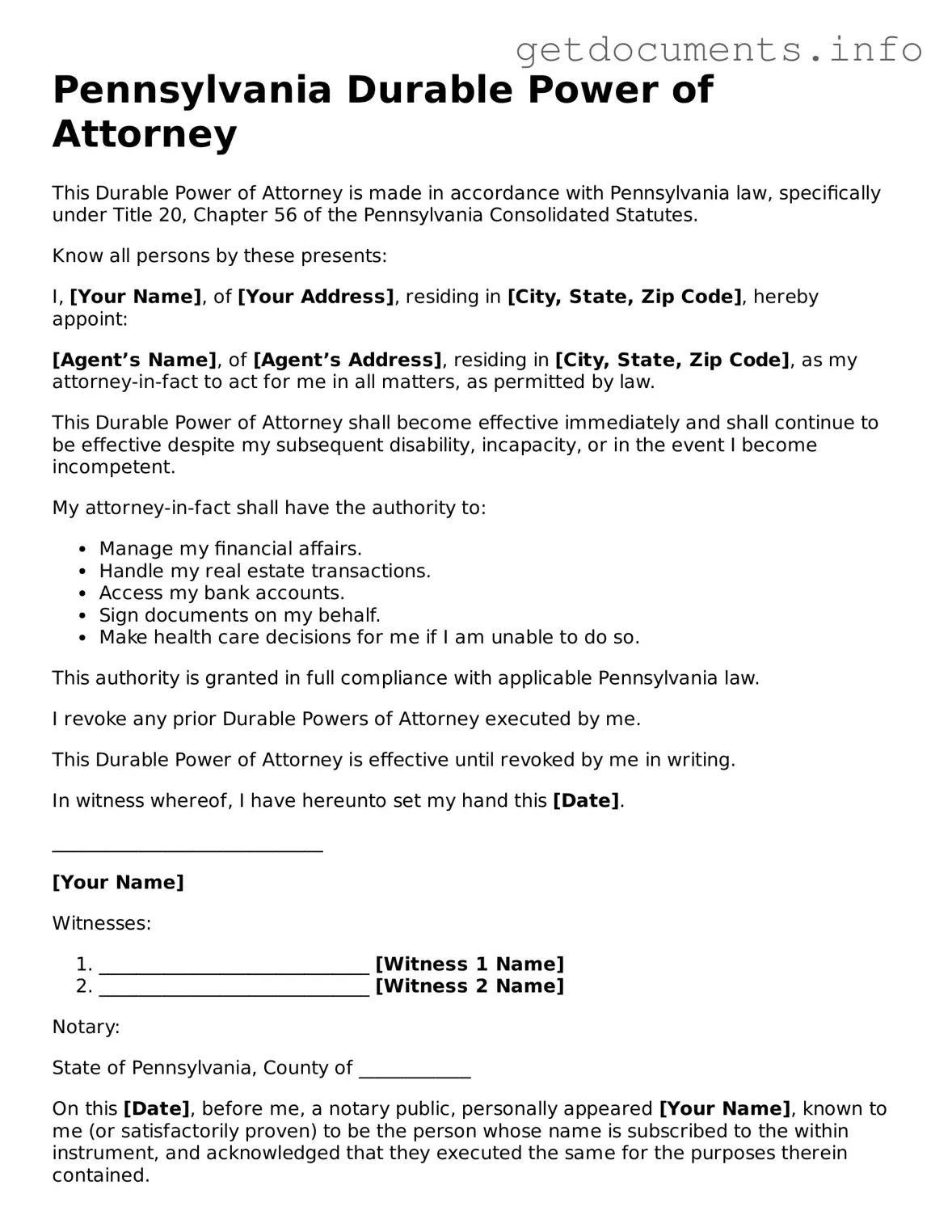Free Durable Power of Attorney Template for Pennsylvania
A Pennsylvania Durable Power of Attorney form is a legal document that allows you to designate someone to make decisions on your behalf if you become unable to do so. This form ensures that your financial and medical affairs are managed according to your wishes, even when you cannot communicate them yourself. Understanding its importance is crucial for protecting your interests; take action now by filling out the form below.
Click the button below to get started!
Access Durable Power of Attorney Editor

Free Durable Power of Attorney Template for Pennsylvania
Access Durable Power of Attorney Editor
Got places to be? Complete the form fast
Fill out Durable Power of Attorney online and avoid printing or scanning.
Access Durable Power of Attorney Editor
or
⇩ PDF File
